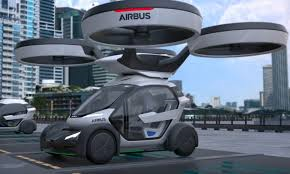
Breaking News
 Poland to Buy 150 Tons More Gold, Approves up to 36.6% Held
Poland to Buy 150 Tons More Gold, Approves up to 36.6% Held
 Michael Oliver: T-Bond Nuclear Panic Will Send Silver VIOLENTLY to $300–$500 | Gold to $8,000
Michael Oliver: T-Bond Nuclear Panic Will Send Silver VIOLENTLY to $300–$500 | Gold to $8,000
 Greentanamo: Trump Deal Gives US Sovereignty Over Small Pockets Of Greenland For Military Bases
Greentanamo: Trump Deal Gives US Sovereignty Over Small Pockets Of Greenland For Military Bases
 Das: Trump's Spat With The Fed Is Not About Central Bank Independence
Das: Trump's Spat With The Fed Is Not About Central Bank Independence
Top Tech News
 The day of the tactical laser weapon arrives
The day of the tactical laser weapon arrives
 'ELITE': The Palantir App ICE Uses to Find Neighborhoods to Raid
'ELITE': The Palantir App ICE Uses to Find Neighborhoods to Raid
 Solar Just Took a Huge Leap Forward!- CallSun 215 Anti Shade Panel
Solar Just Took a Huge Leap Forward!- CallSun 215 Anti Shade Panel
 XAI Grok 4.20 and OpenAI GPT 5.2 Are Solving Significant Previously Unsolved Math Proofs
XAI Grok 4.20 and OpenAI GPT 5.2 Are Solving Significant Previously Unsolved Math Proofs
 Watch: World's fastest drone hits 408 mph to reclaim speed record
Watch: World's fastest drone hits 408 mph to reclaim speed record
 Ukrainian robot soldier holds off Russian forces by itself in six-week battle
Ukrainian robot soldier holds off Russian forces by itself in six-week battle
 NASA announces strongest evidence yet for ancient life on Mars
NASA announces strongest evidence yet for ancient life on Mars
 Caltech has successfully demonstrated wireless energy transfer...
Caltech has successfully demonstrated wireless energy transfer...
 The TZLA Plasma Files: The Secret Health Sovereignty Tech That Uncle Trump And The CIA Tried To Bury
The TZLA Plasma Files: The Secret Health Sovereignty Tech That Uncle Trump And The CIA Tried To Bury
Airbus looking at large drones, flying cars with tests starting 2023

The company is investing in two UAM research programs, CityAirbus, being developed in Europe by Airbus Helicopters under the group's chief technology office (CTO), and the Vahana being developed by the company's Silicon Valley offshoot, A3.
Airbus has already carried out a successful trial in São Paulo of its helicopter ride-hailing service Voom, which aims to ease congestion by making helicopter travel more accessible and affordable. Elsewhere, teams from Silicon Valley to Europe and Asia are working to create entirely new vehicles. CityAirbus is an electric vertical take-off and landing (VTOL) vehicle for up to four passengers, while Vahana aims to create a similar mode of transport for individual travellers or cargo transport. In Singapore, the company is working with the country's National University on the Skyways project to test a parcel transport system using autonomous drones.
While each mission has its own individual requirements, Thomsen says there is an overlap of several core technologies Airbus is developing. "Quite simply, in today's environment, any new solution has to be electrically driven, so batteries and charging stations are indispensable. Vahana and, eventually, CityAirbus will be autonomous to help facilitate safe operation in busier airspace, making reliable sense-and-avoid technology an important aspect.

 Nano Nuclear Enters The Asian Market
Nano Nuclear Enters The Asian Market


